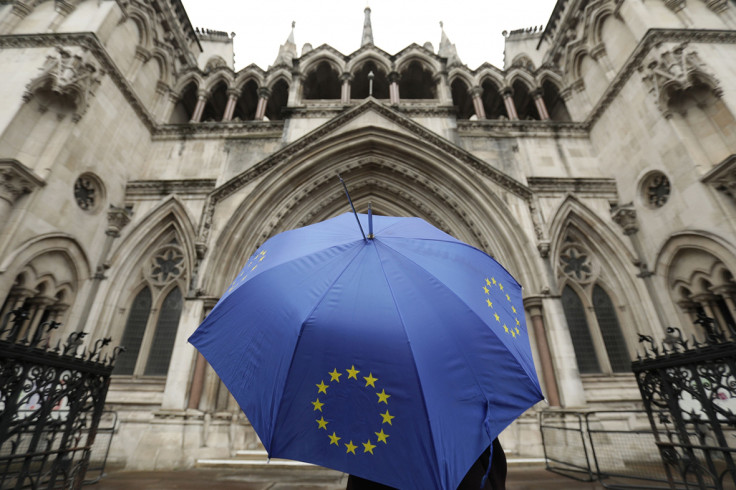Brexit: Supreme Court's Article 50 ruling summary
Supreme Court rules that ministers need Parliament's approval to trigger Article 50 and begin the Brexit process.

JUDGMENT SUMMARY
The Supreme Court by a majority of 8 to 3 dismisses the Secretary of State's appeal (Lord Neuberger, Lady Hale, Lord Mance, Lord Kerr, Lord Clarke, Lord Wilson, Lord Sumption and Lord Hodge in the majority with Lord Reed, Lord Carnwath and Lord Hughes dissenting).
In a joint judgment of the majority, the Supreme Court holds that an Act of Parliament is required to authorise ministers to give Notice of the decision of the UK to withdraw from the European Union.
Each of the dissenting justices gives a separate judgment. On the devolution issues, the court unanimously concludes that neither section 1 nor section 75 of the NIA (Northern Ireland Assembly) is of assistance in this case, and that the Sewel Convention does not give rise to a legally enforceable obligation.
REASONS FOR THE JUDGMENT
Majority judgment
The Supreme Court considers that the terms of the ECA, which gave effect to the UK's membership of the EU, are inconsistent with the exercise by ministers of any power to withdraw from the EU Treaties without authorisation by a prior Act of Parliament.
- Section 2 of the ECA authorises a dynamic process by which EU law becomes a source of UK law and takes precedence over all domestic sources of UK law, including statutes [60]. So long as the ECA remains in force its effect is to constitute EU law as an independent and overriding source of domestic law [65]. It operates as a partial transfer of law-making powers, an assignment of legislative competences, by Parliament to EU institutions, unless and until Parliament decides otherwise [67-68].
- It is common ground that UK domestic law will change as a result of the UK ceasing to be party to the EU treaties and the rights enjoyed by UK residents granted through EU law will be affected [69].
- The Government argues that the 1972 Act does not exclude the power for ministers to withdraw from the EU Treaties, and that section 2 of the Act actually caters for the exercise of such a power as it gives effect to EU law only so long as the power of withdrawal is not exercised [75]. However, there is a vital difference between variations in UK law resulting from changes in EU law, and variations in UK law resulting from withdrawal from the EU Treaties. Withdrawal makes a fundamental change to the UK's constitutional arrangements, by cutting off the source of EU law, [78-80]. Such a fundamental change will be the inevitable effect of a Notice being served [81]. The UK constitution requires such changes to be effected by Parliamentary legislation [82].
- The fact that withdrawal from the EU would remove some existing domestic rights of UK residents also renders it impermissible for the Government to withdraw from the EU Treaties without prior Parliamentary authority [83].
- It would have been open to Parliament when enacting the ECA to authorise ministers to withdraw from the EU Treaties, but clear words would have been required; not only are there no such clear words, but the provisions of the ECA indicate that ministers do not have such power [87, 88]. Withdrawal is not authorised by section 2, which envisages ministers taking part in the EU law-making processes: withdrawing from the EU is doing the opposite [95].
- The fact that ministers are accountable to Parliament for their actions is no answer constitutionally, if the power to act does not exist in the first place and where (as the court has been asked to assume) the exercise of the power would be irrevocable and pre-empt any Parliamentary action [92].
- Subsequent EU-related legislation and events after 1972, including the introduction of Parliamentary controls in relation to decisions made by UK ministers at EU level relating to the competences of the EU or its decision-making processes, but not to the giving of notice under Article 50(2), are entirely consistent with an assumption by Parliament that no power existed to withdraw from the treaties without a statute authorising that course [111].
- The 2016 referendum is of great political significance. However, its legal significance is determined by what Parliament included in the statute authorising it, and that statute simply provided for the referendum to be held without specifying the consequences. The change in the law required to implement the referendum's outcome must be made in the only way permitted by the UK constitution, namely by legislation. The Government accepts that the resolution of the House of Commons on 7 December 2016 calling on ministers to give notice under Article 50 by 31 March 2017 is a political act which does not affect the issues arising in the appeals [116-124].
© Copyright IBTimes 2025. All rights reserved.




















